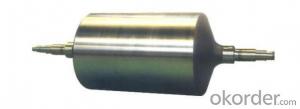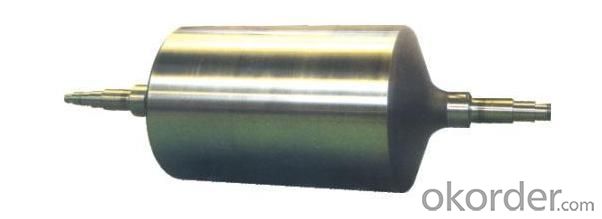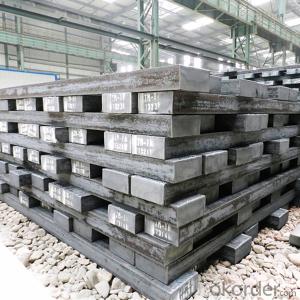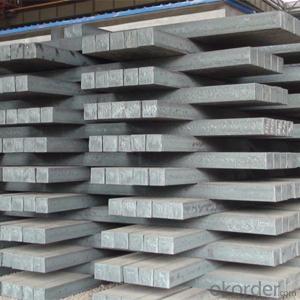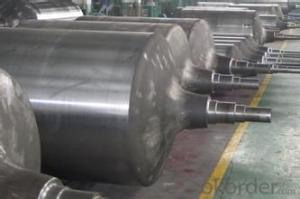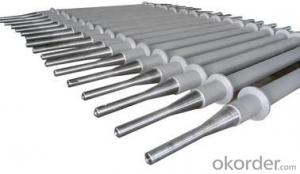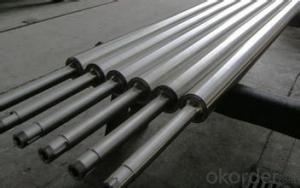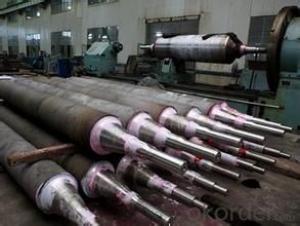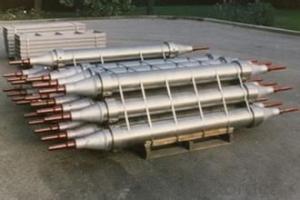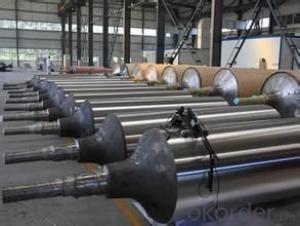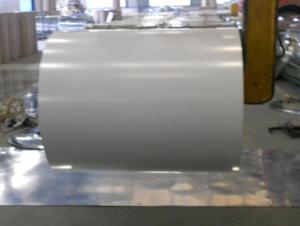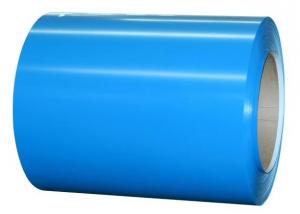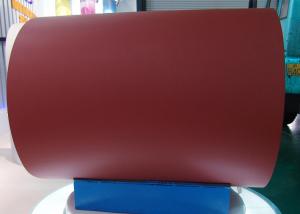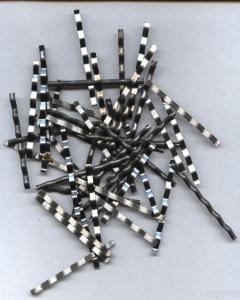In-furnace Support Roll
- Loading Port:
- Tianjin
- Payment Terms:
- TT OR LC
- Min Order Qty:
- 1000 PCS
- Supply Capability:
- 10000 PCS/month
OKorder Service Pledge
OKorder Financial Service
You Might Also Like
Quick Details
| Place of Origin: | Brand Name: | Model Number: | In-furnace support roll | ||
| Application: | machinery | Material: | Steel,9Cr2Mo, 86CrMoV7,60CrMo,VC9 | Dimensions: | 420*9870 |
| Type: | Forging Parts | Certification: | ISO9001 | Diameter: | 30-800mm |
Packaging & Delivery
| Packaging Detail: | wooden case |
| Delivery Detail: | 30-50 working days |
Specifications
1. High coefficient of friction
2. Non-marking roll surface
3. Long life
4.Cut resistance
In-furnace support roll
Rolls series:
--Backup rolls and work rolls for sheet and strip mills
--Breakdown rolls
--Section mill rolls and sleeves for long product mills
--Backup rolls and work rolls for plate mills.
Quality Standard:
Wear resistance, Damage tolerance, and Fatigue endurance.
Specification of Roll | Scope |
Diameter of Barrel | 400~3500mm |
Length of machining | ≤20,000mm |
Process | Forging, Casting |
Material | Alloy steel, Carbon steel, Iron, etc. (86CrMoV7, 9Cr2Mo,9Cr3Mo, 70Cr3Mo,MC3,MC5,SHSS...) |
Barrel hardness | Work roll: ≥ 95HSD, 90~96HSD, 70-90HSD |
Neck hardness | 30~50HSD, 50~65HSD, 75-90HSD |
Barrel hardness evenness | ≤3HSD |
Hardness depth of barrel(one side) | 12~18mm(2%Cr series), 18~35mm(3%Cr series), 20~40mm(5%Cr series) |
Chenmical Analysis
Clssification | Hardness | C | Si | Mn | Ni | Cr | Mo |
Chilled I | 60-70 | 3.0~3.5 | 0.25~0.5 | 0.3~0.8 | 0.5~1.0 | 0.4~1.0 | 0.2~0.6 |
Chilled II | 62-75 | 3.0~3.5 | 0.25~0.5 | 0.3~0.8 | 1.0~2.0 | 0.5~1.2 | 0.2~0.6 |
Chilled III | 65-80 | 3.0~3.5 | 0.25~0.5 | 0.3~0.8 | 2.0~3.0 | 0.6~1.5 | 0.2~0.6 |
Chilled IV | 70-85 | 3.0~3.5 | 0.25~0.5 | 0.3~0.8 | 3.0~4.5 | 0.6~1.5 | 0.2~0.6 |
Applications
--TMT Rolling Mills
--U-Section Mills
--Thin Flat Rolling
--Mills ICCI Intermediate Stand Rolls
--ICCI Finishing
--Stand Rolls Deep Section Mills
--Round Rolling Mills
--Wire Rod Rolling Mills
--T-Section Mills
--Narrow Strip Mills
- Q: How is steel forgings machined for precision components?
- Steel forgings can be machined for precision components through a process known as machining or CNC (Computer Numerical Control) machining. This involves using specialized tools, such as lathes, mills, and grinders, to shape and refine the steel forging into the desired dimensions and specifications. Machining allows for the removal of excess material, creation of precise geometries, and the addition of intricate features, resulting in high-precision components that meet the required tolerances.
- Q: What are the different types of steel stair treads and nosings?
- There are several different types of steel stair treads and nosings available, including diamond plate treads, bar grating treads, perforated metal treads, and expanded metal treads. Each type offers its own unique benefits and features, such as enhanced slip resistance, durability, and ease of installation.
- Q: What are the properties of stainless steel that make it corrosion-resistant?
- Stainless steel is corrosion-resistant due to its high chromium content, which forms a protective oxide layer on its surface. This oxide layer acts as a barrier, preventing the metal beneath from coming into contact with corrosive elements in the environment. Additionally, stainless steel also contains other alloying elements such as nickel and molybdenum, which enhance its corrosion resistance further.
- Q: What are the different types of steel beams?
- There are several different types of steel beams, including I-beams, H-beams, and W-beams. Each type has a specific shape and profile that determines its load-bearing capacity and structural application. I-beams are the most common and versatile, featuring a distinctive "I" shape with flanges on either side. H-beams have a wider flange and are often used for heavier loads and longer spans. W-beams, also known as wide flange beams, have a wider profile and provide increased stability and strength. Overall, the type of steel beam chosen depends on the specific requirements of the construction project.
- Q: How is steel used in the manufacturing of water treatment systems?
- Steel is commonly used in the manufacturing of water treatment systems due to its durability, strength, and resistance to corrosion. It is often used to construct tanks, pipes, and other components that come into contact with water, ensuring the system's longevity and reliability.
- Q: What are the different types of steel profiles and their uses?
- There are several types of steel profiles used in construction and manufacturing. Some common ones include I-beams, angles, channels, and flat bars. I-beams are used for structural support and can handle heavy loads. Angles are used for framing, bracing, and support in various applications. Channels provide structural support and are commonly used in construction projects. Flat bars are versatile and used for various purposes, including construction, manufacturing, and fabrication. Overall, each type of steel profile has its specific uses and advantages depending on the requirements of the project.
- Q: What are the different types of steel rails and their applications in railways?
- There are several types of steel rails used in railways, including flat-bottomed rails, bullhead rails, and grooved rails. Flat-bottomed rails are the most common type and are used for standard railway tracks. Bullhead rails, with a protruding head on top, were widely used in the past but are now less common. Grooved rails have a special groove on top, allowing them to be used in tramways or where the wheels need to be guided. Each type of rail has specific applications based on their design and characteristics, ensuring safe and efficient rail transportation.
- Q: How is steel used in the manufacturing of machinery and equipment?
- Steel is commonly used in the manufacturing of machinery and equipment due to its strength, durability, and versatility. It is used to fabricate various components, such as frames, shafts, gears, and casings, that require high strength and resistance to wear and tear. Additionally, steel's malleability allows for easy shaping and forming, making it suitable for complex machinery designs. Its ability to withstand extreme temperatures and pressures further enhances its utility in the manufacturing process.
- Q: What are the applications of steel in the pharmaceutical industry?
- Steel is commonly used in the pharmaceutical industry for the construction of equipment and machinery such as storage tanks, reactors, and process vessels. Its high strength, corrosion resistance, and durability make it ideal for handling and storing various pharmaceutical substances. Steel is also used for the production of sterile packaging materials and containers, ensuring the safety and integrity of pharmaceutical products. Additionally, steel is utilized in the construction of cleanrooms and other controlled environments to maintain hygienic conditions necessary for pharmaceutical manufacturing.
- Q: What are the uses of steel in the construction of hotels and resorts?
- Steel is widely used in the construction of hotels and resorts due to its exceptional strength and durability. It serves various purposes such as providing structural support, forming the framework of the building, and reinforcing concrete structures. Steel beams and columns are used to create large open spaces, allowing for flexible and efficient floor plans. Additionally, steel is utilized in the construction of staircases, elevator shafts, and roofing systems. Its fire-resistant properties and ability to withstand extreme weather conditions make it an ideal choice for ensuring the safety and longevity of hotels and resorts.
Send your message to us
In-furnace Support Roll
- Loading Port:
- Tianjin
- Payment Terms:
- TT OR LC
- Min Order Qty:
- 1000 PCS
- Supply Capability:
- 10000 PCS/month
OKorder Service Pledge
OKorder Financial Service
Similar products
Hot products
Hot Searches
Related keywords
